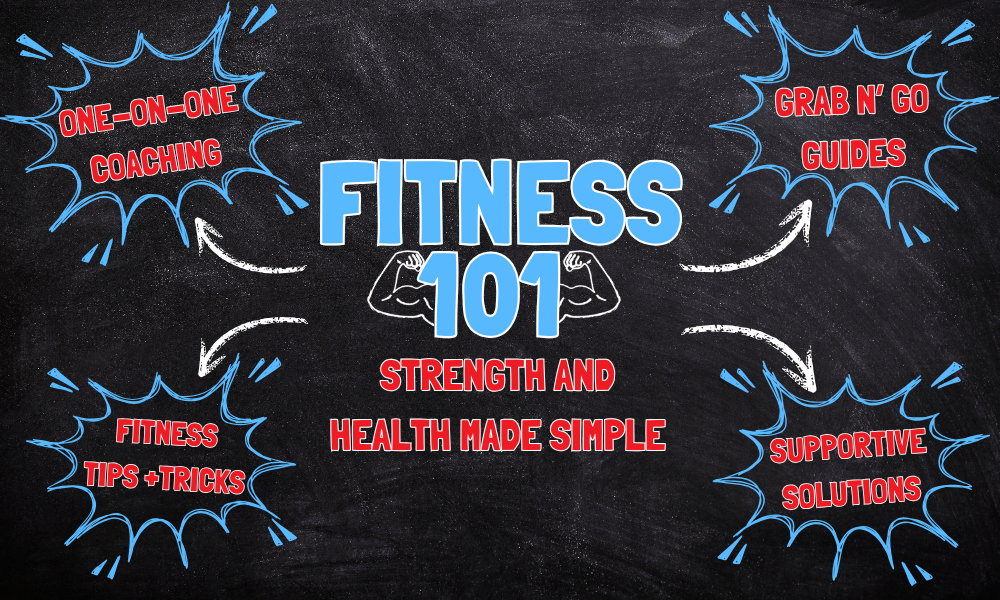
YOU'VE GOT QUESTIONS. WE'VE GOT ANSWERS.
WHAT CAN I EXPECT FROM THESE GUIDES?
Our fat loss, muscle building, and hybrid training programs come with everything you need to start strong and build the body you deserve, skipping the struggles that beginners typically experience!
You'll know exactly what exercises to do, how to do them, and how to optimize your nutrition to make it all happen!
WHAT COMES WITH START UP SUPPORT?
Start up support connects you via text with an experienced fitness professional to answer any questions you may have, provide technique and form advice, and help you make the most of your first 30 days of training!
(And since we're just getting started, that fitness professional will be me, Garrett LaPierre, the first and only Fitness101 employee at the moment :) )
WHAT DOES ONE-ON-ONE COACHING LOOK LIKE?
When you apply for one-on-one coaching, we'll be contacting you to really understand your goals, your schedule, and the equipment you have available.
If we're a good fit for each other, you'll receive a completely custom workout program to suit your goals, schedule, and equipment, as well as a tailor-made meal plan to accelerate your progress, and weekly check-in's to make sure it all goes according to plan!
WHAT IF I'M UNHAPPY WITH MY SOLUTION?
This one is important - If you're unhappy with your solution, we don't want your money.
Every grab-and-go guide comes with a satisfaction guarantee, so if you aren't absolutely thrilled with the program you've selected, we'll do everything we can to make it right. And if that doesn't work, simply say the word and we'll return every penny. No questions asked!
The same principle applies to our one-on-one coaching programs. If you start working with us, and you don't feel like it's a good fit, let us know within the first two weeks and you'll receive a complete and total refund!

POPULAR SOLUTIONS
-
 Sale
Sale -
THE FITNESS 101 BEGINNER'S BUNDLE
Regular price $89.99Regular priceUnit price / per$119.99Sale price $89.99Sale -
THE FITNESS 101 FAT LOSS FORMULA
Regular price $23.99Regular priceUnit price / per$39.99Sale price $23.99Sale -
THE FITNESS 101 HEALTHY GROCER'S HANDBOOK
Regular price $17.99Regular priceUnit price / per$29.99Sale price $17.99Sale -
THE FITNESS 101 HYBRID TRAINING HANDBOOK
Regular price $23.99Regular priceUnit price / per$34.99Sale price $23.99Sale -
THE FITNESS 101 MUSCLE BUILDING MANUAL
Regular price $23.99Regular priceUnit price / per$34.99Sale price $23.99Sale






